#Data Privacy in Healthcare
Text
The Future of Nursing Technology
In the ever-evolving landscape of healthcare, nursing technology stands at the forefront of innovation, driving significant changes in patient care, workflow efficiency, and healthcare outcomes. As we look towards the future, the integration of advanced technologies into nursing practice promises to transform the profession in ways we are only beginning to understand. This article explores the…
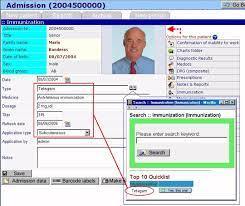
View On WordPress
#Artificial intelligence in nursing#Data privacy in healthcare#Digital health records#Ethical considerations in nursing#Healthcare data analysis#Healthcare innovation#machine learning#Nurse training technology#Nursing education technology#Nursing profession technology#Nursing simulation#Patient monitoring#Predictive analytics#Proactive patient care#Robotic nursing assistants#Robotics in healthcare#Technology-driven patient care#Telehealth#Virtual reality in education#Wearable technology
0 notes
Text


Whew boy. Please protect yourselves and your loved ones
👉🏿 https://www.forbes.com/sites/emilybaker-white/2022/08/08/facebook-abortion-teen-dms/
#politics#facebook#abortion#privacy rights#delete facebook#roe v wade#war on women#reproductive rights#reproductive justice#bodily autonomy#healthcare#surveillance state#womens health#womens rights#data mining
1K notes
·
View notes
Text
I want everyone - every single one of you - to reach out to your healthcare providers and ask them what third-party tracking they use on any online portals you use to access your medical charts. I received a letter today from my local healthcare network ("local" in that they serve the entirety of the 300sq miles of Indianapolis and many of the surrounding cities) letting me know there had been a breach of my protected medical information. Everyone's, in fact. See, apparently they use both Facebook and Google tracking in their internal systems. This was never disclosed to me in the years I have been a patient there. I did not know that these megacorporations that are completely unrelated to healthcare could access my information, nor that every bit of communication I have had with my doctors over the online MyChart portal is run through their third-party tracking without my consent.
This information should be disclosed to the public long before you sign off to be a patient somewhere, but apparently it is not. So please ask your healthcare companies what tracking of your information there is in their systems, what it is for, and why it cannot be done without third parties like Facebook knowing about your reproductive healthcare. Or transition/gender healthcare. Or your HIV treatment. Demand these answers and do not take "because it's easy" as an answer. I am hoping that this will cause a class-action lawsuit, and if it does not, I will be taking legal action myself.
There is no reason third-party tracking needs to be used internally with sensitive documents. I urge you to find out what your healthcare providers are doing with your information and who else can access it. I will never be taking for granted that my medical documents will be protected, as clearly HIPAA is not enough to make these companies guarantee my privacy.
212 notes
·
View notes
Photo

U.S. Marshalls Spied on Abortion Protesters Using DATAMINR >
Twitter’s “official partner” monitored the precise time and location of post-Roe demonstrations, internal emails show.
DATAMINR, AN “OFFICIAL PARTNER” of Twitter, alerted a federal law enforcement agency to pro-abortion protests and rallies in the wake of the reversal of Roe v. Wade, according to documents obtained by The Intercept through a Freedom of Information Act request.
Internal emails show that the U.S. Marshals Service received regular alerts from Dataminr, a company that persistently monitors social media for corporate and government clients, about the precise time and location of both ongoing and planned abortion rights demonstrations. The emails show that Dataminr flagged the social media posts of protest organizers, participants, and bystanders, and leveraged Dataminr’s privileged access to the so-called firehose of unrestricted Twitter data to monitor constitutionally protected speech.
[Sam Biddle, The Intercept, May 15 2023]
#twitter#elon musk#musk#social media#abortion#roe v wade#roe vs wade#abortion rights#pro-abortion#abortion access#healthcare#body autonomy#supreme court#politics#us politics#us government#privacy policy#privacy#datamining#data for sale#government privatization#policing#surveillance#free speech#right of assembly#corporate spying#protest#demonstration#activism#activists
19 notes
·
View notes
Link
By: Todd Feathers, Simon Fondrie-Teitler, Angie Waller, and Surya Mattu
A tracking tool installed on many hospitals’ websites has been collecting patients’ sensitive health information—including details about their medical conditions, prescriptions, and doctor’s appointments—and sending it to Facebook.
The Markup tested the websites of Newsweek’s top 100 hospitals in America. On 33 of them we found the tracker, called the Meta Pixel, sending Facebook a packet of data whenever a person clicked a button to schedule a doctor’s appointment. The data is connected to an IP address—an identifier that’s like a computer’s mailing address and can generally be linked to a specific individual or household—creating an intimate receipt of the appointment request for Facebook.
On the website of University Hospitals Cleveland Medical Center, for example, clicking the “Schedule Online” button on a doctor’s page prompted the Meta Pixel to send Facebook the text of the button, the doctor’s name, and the search term we used to find her: “pregnancy termination.”
Clicking the “Schedule Online Now” button for a doctor on the website of Froedtert Hospital, in Wisconsin, prompted the Meta Pixel to send Facebook the text of the button, the doctor’s name, and the condition we selected from a dropdown menu: “Alzheimer’s.”
The Markup also found the Meta Pixel installed inside the password-protected patient portals of seven health systems. On five of those systems’ pages, we documented the pixel sending Facebook data about real patients who volunteered to participate in the Pixel Hunt project, a collaboration between The Markup and Mozilla Rally. The project is a crowd-sourced undertaking in which anyone can install Mozilla’s Rally browser add-on in order to send The Markup data on the Meta Pixel as it appears on sites that they visit. The data sent to hospitals included the names of patients’ medications, descriptions of their allergic reactions, and details about their upcoming doctor’s appointments.
Former regulators, health data security experts, and privacy advocates who reviewed The Markup’s findings said the hospitals in question may have violated the federal Health Insurance Portability and Accountability Act (HIPAA). The law prohibits covered entities like hospitals from sharing personally identifiable health information with third parties like Facebook, except when an individual has expressly consented in advance or under certain contracts.
Neither the hospitals nor Meta said they had such contracts in place, and The Markup found no evidence that the hospitals or Meta were otherwise obtaining patients’ express consent.
“I am deeply troubled by what [the hospitals] are doing with the capture of their data and the sharing of it,” said David Holtzman, a health privacy consultant who previously served as a senior privacy adviser in the U.S. Department of Health and Human Services’ Office for Civil Rights, which enforces HIPAA. “I cannot say [sharing this data] is for certain a HIPAA violation. It is quite likely a HIPAA violation.”
University Hospitals Cleveland Medical Center spokesperson George Stamatis did not respond to The Markup’s questions but said in a brief statement that the hospital “comport[s] with all applicable federal and state laws and regulatory requirements.”
After reviewing The Markup’s findings, Froedtert Hospital removed the Meta Pixel from its website “out of an abundance of caution,” Steve Schooff, a spokesperson for the hospital, wrote in a statement.
As of June 15, six other hospitals had also removed pixels from their appointment booking pages and at least five of the seven health systems that had Meta Pixels installed in their patient portals had removed those pixels.
The 33 hospitals The Markup found sending patient appointment details to Facebook collectively reported more than 26 million patient admissions and outpatient visits in 2020, according to the most recent data available from the American Hospital Association. Our investigation was limited to just over 100 hospitals; the data sharing likely affects many more patients and institutions than we identified.
Facebook itself is not subject to HIPAA, but the experts interviewed for this story expressed concerns about how the advertising giant might use the personal health data it’s collecting for its own profit.
“This is an extreme example of exactly how far the tentacles of Big Tech reach into what we think of as a protected data space,” said Nicholson Price, a University of Michigan law professor who studies big data and health care. “I think this is creepy, problematic, and potentially illegal” from the hospitals’ point of view.
The Markup was unable to determine whether Facebook used the data to target advertisements, train its recommendation algorithms, or profit in other ways.
Facebook’s parent company, Meta, did not respond to questions. Instead, spokesperson Dale Hogan sent a brief email paraphrasing the company’s sensitive health data policy.
“If Meta’s signals filtering systems detect that a business is sending potentially sensitive health data from their app or website through their use of Meta Business Tools, which in some cases can happen in error, that potentially sensitive data will be removed before it can be stored in our ads systems,” Hogan wrote.
Meta did not respond to follow-up questions, but Hogan appears to be referencing a sensitive health information filtering system that the company launched in July 2020 in response to a Wall Street Journal article and New York Department of Financial Services investigation. Meta told the investigators that the filtering system was “not yet operating with complete accuracy,” according to the department’s February 2021 final report.
The Markup was unable to confirm whether any of the data referenced in this story was in fact removed before being stored by Meta. However, a recent joint investigation with Reveal found that Meta’s sensitive health information filtering system didn’t block information about appointments a reporter requested with crisis pregnancy centers.
Internally, Facebook employees have been blunt about how well—or not so well—the company generally protects sensitive data.
“We do not have an adequate level of control and explainability over how our systems use data, and thus we can’t confidently make controlled policy changes or external commitments such as ‘we will not use X data for Y purpose.’ ” Facebook engineers on the ad and business product team wrote in a 2021 privacy overview that was leaked to Vice.
“Almost Any Patient Would Be Shocked”
The Meta Pixel is a snippet of code that tracks users as they navigate through a website, logging which pages they visit, which buttons they click, and certain information they enter into forms. It’s one of the most prolific tracking tools on the internet—present on more than 30 percent of the most popular sites on the web, according to The Markup’s analysis.
In exchange for installing its pixel, Meta provides website owners analytics about the ads they’ve placed on Facebook and Instagram and tools to target people who’ve visited their website.
The Meta Pixel sends information to Facebook via scripts running in a person’s internet browser, so each data packet comes labeled with an IP address that can be used in combination with other data to identify an individual or household.
HIPAA lists IP addresses as one of the 18 identifiers that, when linked to information about a person’s health conditions, care, or payment, can qualify the data as protected health information. Unlike anonymized or aggregate health data, hospitals can’t share protected health information with third parties except under the strict terms of business associate agreements that restrict how the data can be used.
In addition, if a patient is logged in to Facebook when they visit a hospital’s website where a Meta Pixel is installed, some browsers will attach third-party cookies—another tracking mechanism—that allow Meta to link pixel data to specific Facebook accounts.
And in several cases we found—using both dummy accounts created by our reporters and data from Mozilla Rally volunteers—that the Meta Pixel made it even easier to identify patients.
When The Markup clicked the “Finish Booking” button on a Scripps Memorial Hospital doctor’s page, the pixel sent Facebook not just the name of the doctor and her field of medicine but also the first name, last name, email address, phone number, zip code, and city of residence we entered into the booking form.
The Meta Pixel “hashed” those personal details—obscuring them through a form of cryptography—before sending them to Facebook. But that hashing doesn’t prevent Facebook from using the data. In fact, Meta explicitly uses the hashed information to link pixel data to Facebook profiles.
Using a free online tool, The Markup was also able to reverse most of our hashed test information that the pixel on Scripps Memorial Hospital’s website sent to Facebook.
Scripps Memorial didn’t respond to The Markup’s questions but it did remove the Meta Pixel from the final webpages in the appointment booking process after we shared our findings with the hospital.
On other hospitals’ websites, we documented the Meta Pixel collecting similarly intimate information about real patients.
When one real patient who participated in the Pixel Hunt study logged in to the MyChart portal for Piedmont Healthcare, a Georgia health system, the Meta Pixel installed in the portal told Facebook the patient’s name, the name of their doctor, and the time of their upcoming appointment, according to data collected by the participant’s Mozilla Rally browser extension.
When another Pixel Hunt participant used the MyChart portal for Novant Health, a North Carolina–based health system, the pixel told Facebook the type of allergic reaction the patient had to a specific medication.
The Markup created our own MyChart account through Novant Health to further investigate and found the Meta Pixel collecting a variety of other sensitive information.
Clicking on one button prompted the pixel to tell Facebook the name and dosage of a medication in our health record, as well as any notes we had entered about the prescription. The pixel also told Facebook which button we clicked in response to a question about sexual orientation.
“Our Meta pixel placement is guided by a third party vendor and it has been removed while we continue to look into this matter,” Novant spokesperson Megan Rivers wrote in an email.
Epic Systems, the software company behind MyChart, has “specifically recommended heightened caution around the use of custom analytics scripts,” Stirling Martin, a senior vice president for the company, wrote in an email.
Facebook is able to infer intimate details about people’s health conditions using other means—for example, the fact that a person “liked” a Facebook group associated with a particular disease—but the data collected by pixels on hospitals’ websites is more direct. And in sharing it with Facebook, experts said, health care providers risk damaging patients’ trust in an increasingly digitized health system.
“Almost any patient would be shocked to find out that Facebook is being provided an easy way to associate their prescriptions with their name,” said Glenn Cohen, faculty director of Harvard Law School’s Petrie-Flom Center for Health Law Policy, Biotechnology, and Bioethics. “Even if perhaps there’s something in the legal architecture that permits this to be lawful, it’s totally outside the expectations of what patients think the health privacy laws are doing for them.”
Legal Implications
Facebook’s data collection on hospital websites has been the subject of class action lawsuits in several states, with mixed results.
Those cases involve types of data that health law experts said are sensitive but less regulated than the health information The Markup documented the Meta Pixel collecting.
In 2016, a group of plaintiffs sued Facebook and a handful of health systems and organizations, alleging that the organizations had breached their own privacy policies and several state and federal laws—including wiretapping and intrusion on seclusion statutes—by collecting data via tracking technology on the health care providers’ websites.
The U.S. District Court for the Northern District of California dismissed that case in 2017 for a variety of reasons, including that the plaintiffs failed to prove that Facebook had collected “protected health information,” as defined by HIPAA. Rather, the court found, Facebook had tracked plaintiffs on public-facing pages of the websites—such as the homepage or informational pages about diseases—where there was no evidence that the plaintiffs had established a patient relationship with the provider.
In 2019, plaintiffs brought a similar class action lawsuit in Suffolk County Superior Court against Massachusetts-based Partners Healthcare System, which has since changed its name to Mass General Brigham, alleging that the system had violated patients’ privacy and its own policies by installing the Meta Pixel and other tracking tools on its websites.
The parties settled the case in January, with Mass General Brigham denying the allegations and admitting no wrongdoing or liability but paying $18.4 million to the plaintiffs and their attorneys. After the settlement, Mass General Brigham appears to have removed Meta Pixel and other tracking tools from many of its hospitals’ websites—but not all of them.
When The Markup tested the website of Brigham and Women’s Faulkner Hospital, clicking the “Request Appointment” button on a doctor’s page caused the Meta Pixel to send Facebook the text of the button, the doctor’s name, and the doctor’s field of medicine. Mass General did not respond to The Markup’s request for comment.
As with all such data we found the Meta Pixel collecting, it was sent to Facebook along with our computer’s public IP address.
“When an individual has sought out a provider and indicated that they want to make an appointment, at that point, any individually identifiable health information that they’ve provided in this session, in the past, or certainly in the future, is protected under HIPAA and could not be shared with a third party like Facebook,” Holtzman said.
The U.S. Department of Human Services’ Office for Civil Rights “cannot comment on open or potential investigations,” spokesperson Rachel Seeger wrote in an emailed statement.
“Generally, HIPAA covered entities and business associates should not be sharing identifiable information with social media companies unless they have HIPAA authorization [from the individual] and consent under state law,” said Iliana Peters, a privacy lawyer with the firm Polsinelli who previously headed HIPAA enforcement for the Office for Civil Rights.
Patients have the right to file HIPAA complaints with their medical providers, who are required to investigate the complaints, Peters said, adding, “I would hope that institutions would respond quickly to those types of complaints so that they aren’t escalated to a state or federal regulator.”
"Plausible Deniability"
Most of the hospitals The Markup contacted for this story did not respond to our questions or explain why they chose to install Meta Pixel on their websites. But some did defend their use of the tracker.
“The use of this type of code was vetted,” wrote Chris King, a spokesperson for Northwestern Memorial Hospital, in Chicago. King did not respond to follow-up questions about the vetting process.
King said that no protected health information is hosted on or accessible through Northwestern Memorial’s website and that “Facebook automatically recognizes anything that might be close to personal information and does not store this data.”
In fact, Meta explicitly states in its business tools terms of service that the pixel and other trackers do collect personally identifiable information for a variety of purposes.
Houston Methodist Hospital, in Texas, was the only institution to provide detailed responses to The Markup’s questions. The hospital began using the pixel in 2017, spokesperson Stefanie Asin wrote, and is “confident” in Facebook’s safeguards and that the data being shared isn’t protected health information.
When The Markup tested Houston Methodist’s website, clicking the “Schedule Appointment” button on a doctor’s page prompted the Meta Pixel to send Facebook the text of the button, the name of the doctor, and the search term we used to find the doctor: “Home abortion.”
Houston Methodist doesn’t categorize that data as protected health information, Asin wrote, because a person who clicks the “Schedule Appointment” button may not follow through and confirm the appointment, or, they may be booking the appointment for a family member rather than for themself.
“The click doesn’t mean they scheduled,” she wrote. “It’s also worth noting that people often are exploring for a spouse, friend, elderly parent.”
Asin added that Houston Methodist believes Facebook “uses tools to detect and reject any health information, providing a barrier that prevents passage of [protected health information].”
Despite defending its use of the Meta Pixel, Houston Methodist Hospital removed the pixel from its website several days after responding to The Markup’s questions.
“Since our further examination of the topic is ongoing, we elected to remove the pixel for now to be sure we are doing everything we can to protect our patients’ privacy while we are evaluating,” Asin wrote in a follow-up email.
Facebook did not launch its sensitive health data filtering system until July 2020, three years after Houston Methodist began using the pixel, according to the New York Department of Financial Services’ investigation. And as recently as February of last year, the department reported that the system’s accuracy was poor.
That type of Band-Aid fix is a prime example, privacy advocates say, of the online advertising industry’s inability to police itself.
“The evil genius of Facebook’s system is they create this little piece of code that does the snooping for them and then they just put it out into the universe and Facebook can try to claim plausible deniability,” said Alan Butler, executive director of the Electronic Privacy Information Center. “The fact that this is out there in the wild on the websites of hospitals is evidence of how broken the rules are.”
This article was copublished with STAT, a national publication that delivers trusted and authoritative journalism about health, medicine, and the life sciences. Sign up for their health tech newsletter, delivered Tuesday and Thursday mornings, here: https://www.statnews.com/signup/health-tech/
This article was originally published on The Markup and was republished under the Creative Commons Attribution-NonCommercial-NoDerivatives license.
#article#full article under the cut#abortion#healthcare#reproductive justice#disability justice#facebook#data privacy#data security#trackers#important#bolding mine
11 notes
·
View notes
Text
Biometrics and Cyber Security
As technology advances, new faults and threats emerge, making cyber security a top priority. Along with these developments, we must remember that hackers are changing as well, and they continue to pose a threat to cyberspace. Because traditional.....
(more…)

View On WordPress
#Airport Security#Benefits of Biometrics#Biometric Data Security Concerns#Biometrics - Identity & Privacy Concerns#Biometrics and Cyber Security#Drawbacks of Biometrics#Examples of Biometric Security#Face Recognition#Finger or Palm Veins Recognition#Fingerprint Recognition#Healthcare#Home Security#Iris/Retina Recognition#Law Enforcement#Money Security#speaker recognition#Three Types of Biometrics Security#What is Biometrics?
1 note
·
View note
Text
I'm glad I'm in the EU because "we can't give you the site unless you allow our advertisers and approximately 50000 other capitalist corporations that don't have to abide to any medical privacy laws to know what ails you" scares me
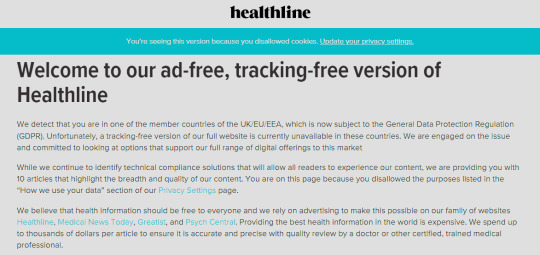
#privacy#HIPAA#HIPAA does not apply to advertisers#like seriously HIPAA really only applies to actual medical staff that you are in contract with#healthcare#data protection
0 notes
Text
Protecting patient privacy is critical for healthcare providers today, with data breaches being a major concern. Compliance with industry regulations not only safeguards sensitive information but also ensures trust and confidence among patients. Here are indispensable strategies to enhance healthcare compliance and fortify patient data security:
0 notes
Text
AI Innovations: Advancements and Studies Redefining Industries
Amanda JacksonThe MetaphoricalFebruary 9, 2024
Artificial Intelligence (AI) continues its relentless march forward, with recent breakthroughs and studies highlighting its transformative potential across various fields. From healthcare to finance, education to transportation, the latest advancements in AI are reshaping industries and opening new avenues for innovation.
In healthcare, AI is…

View On WordPress
#AI Tutors#Artificial Intelligence#cancer detection#cognitive science#data privacy#editorial#education#ethics#finance#healthcare#industry#International Finance Institute#investment strategies#machine learning#non bias#research#risk management#science#self-driving cars#the metaphorical#transportation
0 notes
Text
Exploring the Future of IoT | Internet of Things
Internet of Things (IoT) has already transformed the way we perceive and interact with technology connecting everyday objects to the digital world. As we navigate through a rapidly evolving technological landscape it becomes crucial to delve deeper into the future of IoT and the endless possibilities it holds. Let’s explore the exciting advancements and emerging trends that will shape the future…

View On WordPress
#connected devices#Data Analytics#Emerging IoT Technologies#Future Technology#Industrial IoT#IoT Applications#IoT Automation#IoT Connectivity#IoT Data Privacy#IoT Ecosystem#IoT in Agriculture#IoT in Healthcare#IoT Industry Insights#IoT Infrastructure#IoT Innovations#IoT Security#IoT Sensors#IoT Sustainability#IoT Trends#Smart Homes
0 notes
Text
#healthcare industry#healthcare#health#health news#medical care#hospitals#data#data security#data privacy#software development
1 note
·
View note
Text
How to Protect Patient Privacy When Launching a New Healthcare Data Project
Patient health data is an invaluable resource for healthcare organizations: it can be used to improve treatment pathways, manage demand and capacity, and raise safety standards and much more. However, confusion and concerns around the safe and compliant use of patient data is preventing many of these benefits from being realized.
Introduction:
Health data expert Philip Russmeyer explains how to navigate the hurdles of patient data management, and how healthcare organizations can store, access and analyze patient data in the most secure way. This includes an explanation of: how to release valuable data from silos, the crucial differences between data anonymization and pseudonymization, and when, why and how each privacy-protecting process ought to be deployed.
If asked to rank the most valuable assets of a healthcare organization, most people would rank the staff, medical equipment, medications, or even the software highest on their list.
However, if we think about ‘value’ as ‘potential to save lives and improve multiple organizational outcomes at scale’, it’s the value of patient health data that stands out far ahead of all other assets. In Europe in 2023, every hospital and healthcare system stands to become a more efficient, more evidence-directed, and more effective patient care provider by better accessing, linking and deploying data resources in a secure and compliant manner. Despite this, many leaders are reluctant to improve their data utilization because the mountain appears too difficult and too dangerous to climb.
This is increasingly becoming a huge barrier to progress. Yes, large-scale data projects are a big undertaking, and can contain an element of risk, but there have also never been more options and technologies available to ensure privacy and deliver success. Today, as providers struggle with capacity and staff overutilisation, and in the future, as budgets become increasingly squeezed no health system can afford to ignore the benefits of data-driven decision making.
Data saves lives
As data access technologies, cryptographic algorithms and interoperable infrastructures improve in capability and sophistication, the ability of organizations to unlock the power of the data they hold about their patients - and unlock improved outcomes - is expanding at pace.
In March 2020, as European countries began their first pandemic lockdowns, the Randomised Evaluation of COVID-19 Therapy (RECOVERY) trial was launched in the UK. With the goal of identifying existing medications that could prove to be effective as COVID-19 treatments, researchers on this trial were given secure access to data from nearly 50,000 patients across 192 clinical venues. This wealth of real-time information was deployed by the researchers to recruit trial participants, allocate treatments, monitor outcomes and analyze results. After just 100 days, researchers were able to provide evidence that neither hydroxychloroquine nor Lopinavir/ritonavir were effective treatments. However, this evidence also showed that a different medication, dexamethasone, could reduce deaths by up to one third in hospitalized patients. This drug went on to save the lives of over one million COVID-19 patients around the world. Data was accessed during this period under so-called emergency “COPI notices” which temporarily suspended individuals’ rights to privacy, and as the pandemic has ended this practice has quite correctly been removed. However, similar insights can now be generated at the same scale and speed with leading-edge data access and privacy preservation technology without the risk of compromising individuals’ privacy. How? By anonymising at source, still linking across sources when required, and leaving all record-level data in its original setting whenever possible.
In 2022, at St George’s Hospital in London, an Inflammatory Bowel Disease (IBD) project launched in collaboration with FITFILE used this very technology to undertake analysis of the organization’s existing siloed IBD patient data to generate significant system efficiencies. This initiative showed that switching the biologics of 50% of patients could improve overall outcomes by 10%. It also showed that savings of around £2.5 million could be achieved from funding reallocation just for one subsection of patients in one hospital department – which, when grossed up for all patients across all departments could significantly improve that hospital trust’s financial standing and available resources for optimized patient care.
These are two excellent use-cases for the huge volume of patient data that every healthcare organization – from hospitals to primary and specialist care clinics to entire health systems - collects and stores on a daily basis.
Both the RECOVERY trial and the St George’s IBD project act as useful illustrations of how patient data can practically be leveraged in a high-impact manner: with other examples ranging from managing system capacity to identifying process efficiencies to designing new treatment pathways.
Gold-standard systems
Understandably, and encouragingly, national and independent healthcare organizations across Europe are now increasingly pursuing a vast array of projects to unlock and unite patient data.
If healthcare organizations wish to create and maintain systems that facilitate this leveraging of locked-up data, they must premise such systems on streamlined and highly secure, complete data access. This necessitates mass collaboration between stakeholders - patients, researchers, clinicians and administrators - and explicit data sharing agreements that are ultimately in the patients’ best interests.
Once a realistic roadmap has been put in place for the achievement of complete data access, the next step would be to establish safe and secure avenues along which data could be accessed and united.
However, this huge opportunity comes with huge risk and huge responsibility. Unless leaders acknowledge the sources of this risk and understand how to mitigate it, the full potential of patient data projects will remain unrealized.
Protecting patient privacy: the need-to-knows
Every institution that collects and stores private data is legally obligated to uphold the privacy of the individuals it belongs to. Data protection regulation mandates that, in Europe, patient data can only be used by healthcare and research organizations beyond direct patient care if the individuals concerned can never be re-identified. The only practical exceptions are if consent has been explicitly granted by the individual concerned, and/or the use case has been specially approved by authorities.
Recent interesting examples include DARWIN EU’s initial batch of studies using real-world data covering areas such as rare blood cancers and asthma. National databases on a variety of sources such as hospitals, primary care, health insurance, registries and biobanks were used to investigate aspects such as prevalence, safety and prescription patterns.
These studies show that patient data does not need to remain locked up until explicit consent is secured. However, they also highlight the need for sophisticated methods of privacy preservation when data is accessed and used.
In practice, this means that all identifying features must be removed from the data - so the information can never be linked back to a single individual. This is where the challenge lies. As noted, for instance, in the DARWIN Protocol C1-001, “patient visiting more than one provider are not cross identified for data protection reasons and therefore recorded as separate in the system”. This is just one example of the severe limits to insight generation if complete, accurate and consistent patient health profiles can’t be assembled at the record-level from numerous data points distributed across various sources such as electronic health records, pathology results and administrative databases. Until quite recently, it’s only been possible to bring together this data in (far less useful) aggregated or in identifiable form, which, as explained, violates privacy regulations.
Even if ‘tokenization’ is used - and the patient identity is replaced with a token - the reversible nature of the process means that the data can be re-identified, and subsequently the process does not fully protect privacy. The explicit consent or specific permission route must be pursued for every use of tokenized data.
Is anonymization the answer?
Importantly, recent advances in proven cryptography have opened the door to huge possibilities for safely uniting and using patient data.
Using new and unique processes, all identifiable information can be stripped from the data, rendering it safe for unification and the best option for preserving privacy. Once this total, irreversible anonymization has been carried out - ideally whilst the data remains in its source location - the data can now still be linked longitudinally and contemporaneously without requiring explicit patient consent.
This means that both retrospective and prospective patient data, collected from numerous touchpoints, can be used without any compliance risk.
This approach empowers healthcare providers and clinical teams to effectively recognize unique patterns within the local patient population and cater to individual healthcare requirements. It facilitates the prompt and precise identification of patient cohorts, optimizes resource allocation for care provision, and ultimately contributes to enhanced health outcomes.
Read More: https://www.europeanhhm.com/articles/how-to-protect-patient-privacy-when-launching-a-new-healthcare-data-project
#healthcare#hospitals#health#medical care#doctors#health and wellness#healthy lifestyle#medical equipment#technologies#artifical intelligence#patient privacy#healthcare data security
0 notes
Text

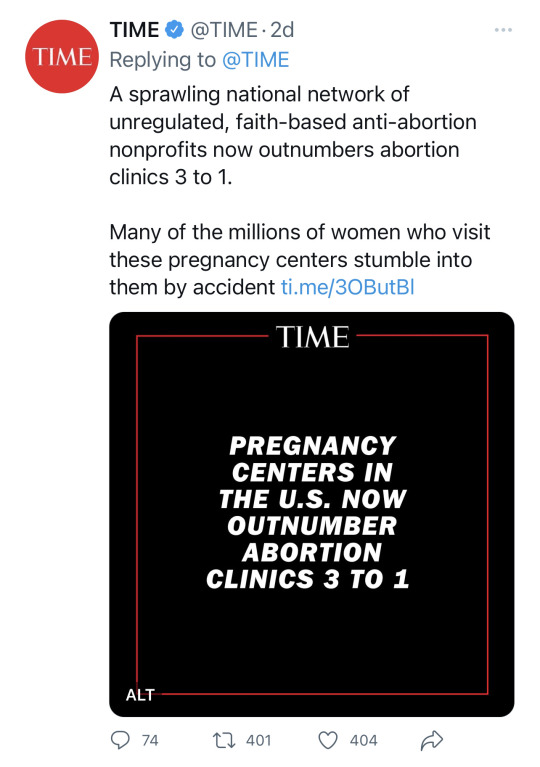



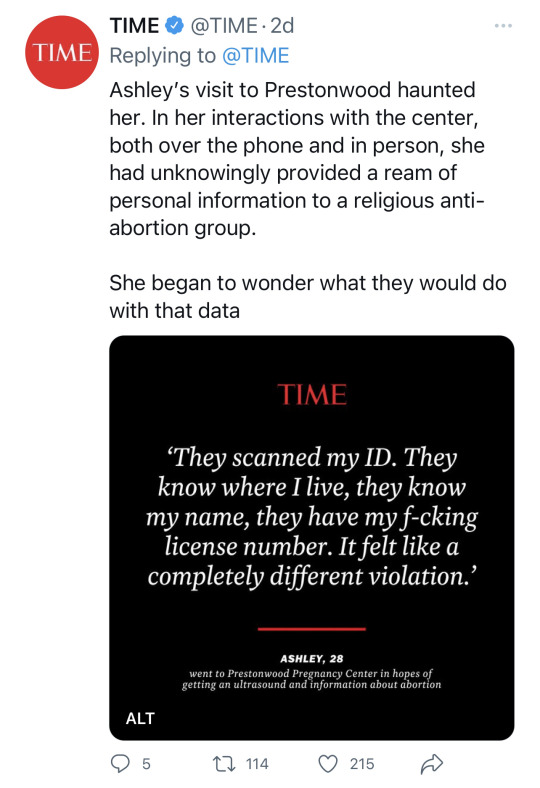
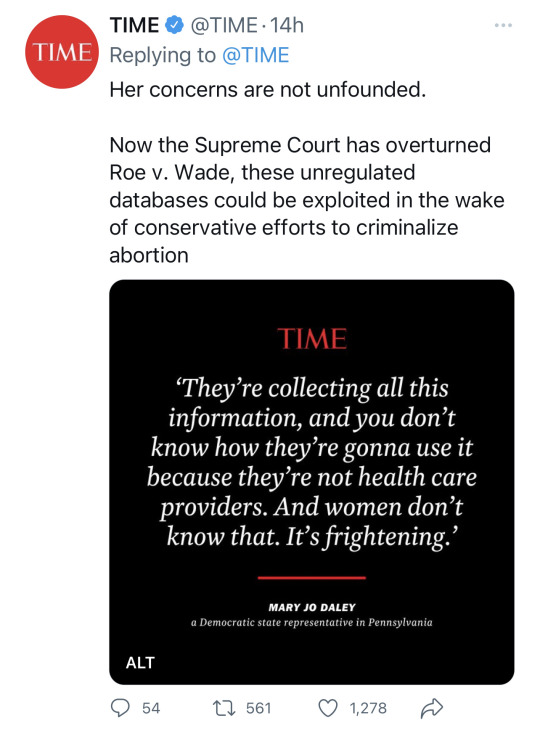
Please be careful. Fake, anti-abortion, “pregnancy centers” are disguising themselves as pro-choice abortion clinics, and they are collecting a ton of personal data on desperate people who were tricked into coming to them.
👉🏿 https://time.com/6189528/anti-abortion-pregnancy-centers-collect-data-investigation/
#politics#abortion#roe v wade#reproductive justice#reproductive rights#war on women#healthcare#womens rights#republicans#republicans are evil#data mining#privacy rights#surveillance state#mass surveillance#pregnancy crisis centers
1K notes
·
View notes
Text
Navigating Europe's Regulatory Maze: Safeguarding Data Privacy in Pharma Sales
In today's digital era, data privacy has become a paramount concern for both individuals and businesses. The rapid advancement of technology and the increasing collection and utilization of personal data have made it imperative for companies operating in the pharmaceutical sector to effectively manage the intricate regulatory landscape in Europe. This article aims to delve into the intersection of data privacy and pharmaceutical sales, shedding light on the primary considerations and challenges encountered by pharmaceutical companies in Europe. It also provides insights into effective strategies for ensuring compliance.
Read Full Blog Here: https://www.anervea.com/safeguarding-data-privacy-in-pharma-sales-navigating-europes-regulatory-maze
Europe, renowned for its stringent data protection regulations, has implemented the General Data Protection Regulation (GDPR) to safeguard the privacy rights of its citizens. GDPR establishes a comprehensive framework for the processing and transfer of personal data, imposing rigorous obligations on organizations and granting individuals greater control over their personal information. For pharmaceutical companies, compliance with GDPR is of paramount importance due to their handling of substantial amounts of sensitive patient data and engagement in targeted marketing and sales activities.
One of the chief challenges faced by pharmaceutical companies is securing lawful consent for processing personal data. Under GDPR, consent must meet specific criteria, including being freely given, specific, informed, and unambiguous. Companies must transparently explain the purpose of data collection and obtain explicit consent from individuals. In the context of pharmaceutical sales, this necessitates ensuring that individuals fully comprehend how their personal data will be employed for marketing and sales purposes, alongside providing a clear mechanism for opting out if desired.
Transparency serves as another critical element of data privacy in the pharmaceutical industry. Companies are obligated to disclose their data processing practices, encompassing the types of data collected, the purposes of processing, and any third parties with whom it may be shared. This transparency fosters trust among patients and empowers them to make informed decisions regarding their data. To ensure compliance with GDPR requirements, pharmaceutical companies should uphold comprehensive privacy policies and consistently communicate updates to their customers.
Pharmaceutical sales often entail targeted marketing and sales campaigns tailored to specific patient populations. However, in the context of data privacy, companies must exercise caution when relying on personal data for targeting to avoid contravening GDPR principles. GDPR prohibits automated decision-making, including profiling, if it has legal effects or significant impacts on individuals. Consequently, pharmaceutical companies must conduct careful risk assessments regarding such practices and implement suitable safeguards to protect individual rights and freedoms.
Data security represents another crucial facet of consideration for pharmaceutical sales in Europe. Companies must establish and maintain appropriate technical and organizational measures to safeguard personal data against unauthorized access, loss, or alteration. These measures may encompass encryption, regular security audits, access controls, and staff training in data protection best practices. Compliance with GDPR's data breach notification requirements is also paramount, necessitating prompt notification to relevant authorities and affected individuals in the event of a data breach.
To successfully navigate Europe's regulatory environment, pharmaceutical companies should adopt a proactive approach to data privacy compliance. This includes conducting comprehensive data protection impact assessments to identify and mitigate potential risks related to data processing activities. Collaborating with data protection experts and legal professionals can offer invaluable guidance in developing robust data privacy strategies tailored to the pharmaceutical industry's specific requirements.
Moreover, as technology continues to advance, pharmaceutical companies should remain vigilant and adapt their data privacy practices accordingly. Emerging technologies like artificial intelligence, machine learning, and big data analytics provide new opportunities for personalized medicine and targeted marketing. However, these innovations also introduce new challenges concerning data privacy compliance. Staying informed about evolving regulatory frameworks and responsibly leveraging technology are essential to ensure that data privacy remains a central focus.
In conclusion, data privacy represents a critical concern for pharmaceutical companies operating within Europe's regulatory environment. By comprehending and adhering to GDPR's requirements, companies can establish trust with patients, maintain ethical data practices, and adeptly navigate the complexities of pharmaceutical sales. Prioritizing principles such as lawful consent, transparency, data security, and accountability not only guarantee compliance but also showcases a dedication to safeguarding individuals' privacy rights. By emphasizing data privacy in pharmaceutical sales, companies can nurture stronger customer relationships, protect their reputation, and contribute to the ethical and responsible utilization of personal data in the pharmaceutical sector. Ultimately, navigating Europe's regulatory landscape necessitates a proactive and holistic approach to data privacy, where compliance and ethical considerations go hand in hand to protect individuals' rights and trust in an increasingly digital world.
Visit our website now: https://www.anervea.com/

#healthcare#data analytics#digital privacy#pharmasales#privacy rights#data privacy#dataprotection#gdpr
0 notes
Text
How Artificial Intelligence is Changing Everyday Life
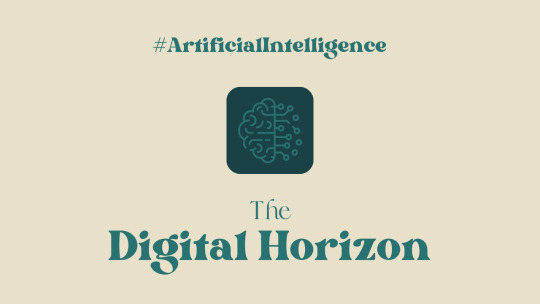
You might've heard that Artificial Intelligence (AI) is predicted to add a staggering $15.7 trillion to the global economy by 2030. But do you know how it's revolutionizing your everyday life right now? From healthcare to your daily commute, AI is making significant strides. Let's dive in and explore the incredible ways this technology is affecting us all.
AI and Your Health
Telehealth has become more than a buzzword; it's a lifeline for many, especially during times of crisis. AI-driven platforms are making it possible to have a doctor's appointment from the comfort of your home. Not just that, predictive algorithms analyze a wide range of patient data to forecast potential diseases. Imagine knowing the likelihood of a health condition long before it strikes! But it doesn't stop at patient care. The administrative side of healthcare—think paperwork, appointment scheduling, and billing—is also getting an AI makeover, allowing medical professionals to focus more on what they do best: taking care of you.
Getting Around With AI
If you've ever been stuck in traffic, fantasizing about a world where cars drive themselves, you're in for a treat. Self-driving cars are no longer just the stuff of science fiction. These AI-controlled vehicles promise not only to make driving easier but also safer by reducing human error. Beyond personal cars, AI is optimizing public transportation. Algorithms sift through data to provide the most efficient routes and schedules. Even our traffic lights are getting smarter; they adapt to real-time road conditions, reducing your wait time at red lights.
AI at Home
Your home, too, is getting the AI treatment. Voice-activated devices like Alexa and Google Home are not mere novelties; they're practical tools that can control lighting, temperature, and even your refrigerator. Speaking of energy, AI goes beyond convenience. It's helping us manage our energy consumption by optimizing heating and cooling systems. It's like having a personal environmentalist in your pocket, helping you reduce your carbon footprint one decision at a time.
Managing Money Through AI
Managing finances is not everyone's cup of tea, and that's where AI comes in. Robo-advisors use machine learning to assess market conditions and make investment decisions. You also have an extra layer of security with real-time fraud detection. And if you find budgeting a chore, AI-powered apps are here to help, offering personalized advice tailored to your spending habits.
Navigating Ethical Waters
While AI offers extraordinary benefits, it's essential to consider the ethical implications. Data privacy, for instance, is a significant concern. As we rely more on these intelligent systems, there's the question of how much we're willing to give away in terms of personal information. Beyond that, there's the debate over job displacement and dependency on machines. It's crucial to strike a balance and prioritize ethical development in the AI sphere.
The Future is Bright
Looking ahead, the possibilities seem almost endless. Whether it's art generated by algorithms or AI-driven educational tools that adapt to each student's needs, the future of AI is a canvas of untapped potential. The key is to view AI not as a looming threat but as a tool for furthering human advancement.
To Sum it All Up
AI is more than a technological trend; it's a transformative force impacting our healthcare, transportation, homes, and even our wallets. By proceeding with ethical considerations at the forefront, we can ensure that AI serves as a tool to augment our human capabilities rather than replace them. So, as we stand on the cusp of this digital revolution, let's embrace the endless possibilities AI offers for a brighter, more convenient future.
Thank you for reading! Stay tuned to The Digital Horizon for more insights, tips, and recommendations on navigating the digital world.
#Artificial Intelligence#AI in Healthcare#Self-Driving Cars#Smart Homes#AI Ethics#Personal Finance AI#AI Future#AI Impact#Telemedicine#AI in Transportation#Predictive Analysis#AI Technology#Machine Learning#Data Privacy#Robo-advisors#AI and Sustainability#AI and Energy Management#AI Advancements#Everyday AI#AI Trends#AI
0 notes
Text
Google's Med-PaLM 2: Testing AI Chatbot for Medical Questions
Google’s Bet on Med-PaLM 2The Battle for AI Dominance in HealthcarePotential Risks and SafeguardsRace Among Rivals: Microsoft’s RoleDevelopment and ChallengesBalancing Accuracy and RelevanceEthical Considerations and Patient EducationConclusion
Google is stepping up its efforts in the healthcare industry by testing an artificial intelligence program called Med-PaLM 2. The program aims to…
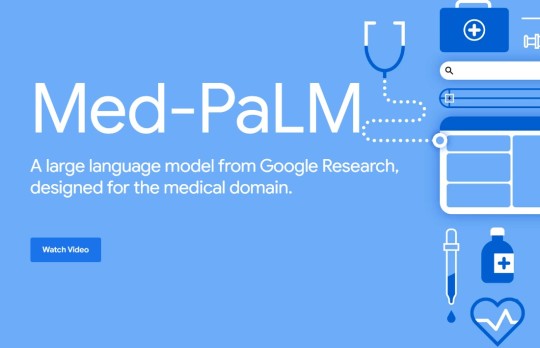
View On WordPress
#accuracy#AI#AI algorithms#Artificial intelligence#chatbot#ChatGPT#cloud computing#Data Privacy#development#Ethics#evaluation#generative AI#Google#Healthcare#healthcare industry#Mayo Clinic#Med-PaLM 2#medical questions#Microsoft#OpenAI#patient care#patient data#patient education#relevance#research hospital#technology#testing#transparency#virtual assistant
0 notes